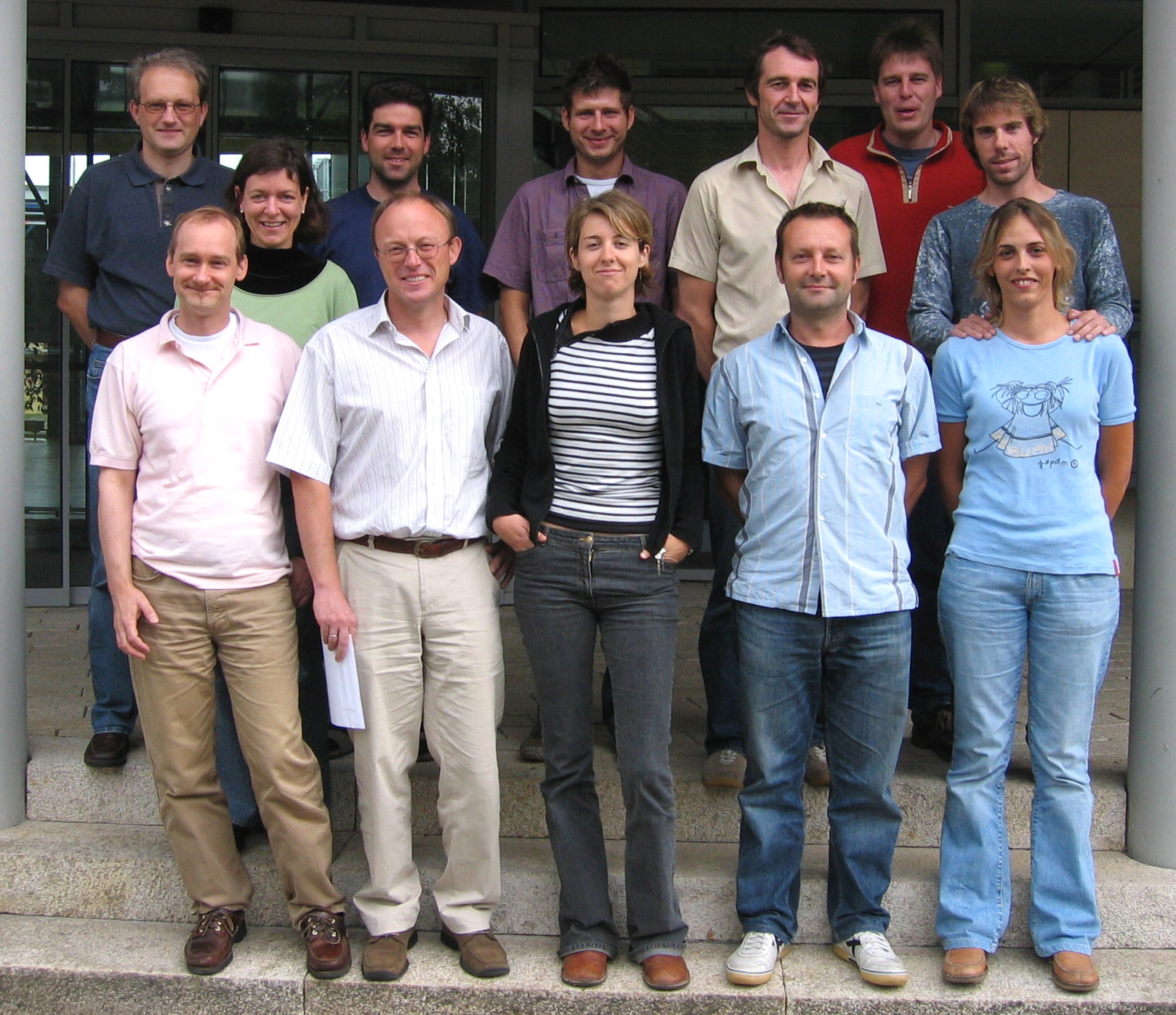Page path:
- Press Office
- Press releases 2005
- 07.07.2005: Ecological Genomics: Where Genomics m
Ecological Genomics: Where Genomics meets Ecology
What is the meaning behind all the DNA sequences? During the past years bioinformatic
experts have developed powerful software tools in order to disclose the information hiding
behind the endless rows of the four simple letters C, G, A and T pouring out of the genomic
sequencing projects. This information is vital for the microorganisms to shape their
metabolism and to survive in different habitats. With this new branch in science called “Bioinformatics” scientists have a tool at their fingertips that will help to unravel the secrets of life.
A group of 14 scientists from France, Spain and Germany have met in July 2005 for two weeks
at the Max Planck Institute for Marine Microbiology to learn how to use bioinformatics to
discover specific adaptations, functions, pathways and enzymes in the genomes of three
environmentally relevant marine Bacteria.
This “Annotation Jamboree” has been organised by the experts from the Microbial Genomics
Group and is part of their efforts within the Network of Excellence Marine Genomics Europe.
Two of the organisms belong to the group of Bacteroidetes which have been associated to be
important degraders of macromolecules in the marine system. The third organism is a
representative of the gamma subclass of Proteobacteria and was isolated from the North Sea
where it is found in high abundances. High quality draft genome sequencing has been provided by the French sequencing centre Genoscope and the J. Craig Venter Institute with grants from the Gordon and Betty Moore Foundation. Frank Oliver Glöckner, group leader at the Max Planck Institute, is optimistic: "This project will
contribute to the currently ongoing worldwide efforts to investigate the diversity and function
of marine microorganisms by state of the art genomic and metagenomic approaches".
Manfred Schlösser
experts have developed powerful software tools in order to disclose the information hiding
behind the endless rows of the four simple letters C, G, A and T pouring out of the genomic
sequencing projects. This information is vital for the microorganisms to shape their
metabolism and to survive in different habitats. With this new branch in science called “Bioinformatics” scientists have a tool at their fingertips that will help to unravel the secrets of life.
A group of 14 scientists from France, Spain and Germany have met in July 2005 for two weeks
at the Max Planck Institute for Marine Microbiology to learn how to use bioinformatics to
discover specific adaptations, functions, pathways and enzymes in the genomes of three
environmentally relevant marine Bacteria.
This “Annotation Jamboree” has been organised by the experts from the Microbial Genomics
Group and is part of their efforts within the Network of Excellence Marine Genomics Europe.
Two of the organisms belong to the group of Bacteroidetes which have been associated to be
important degraders of macromolecules in the marine system. The third organism is a
representative of the gamma subclass of Proteobacteria and was isolated from the North Sea
where it is found in high abundances. High quality draft genome sequencing has been provided by the French sequencing centre Genoscope and the J. Craig Venter Institute with grants from the Gordon and Betty Moore Foundation. Frank Oliver Glöckner, group leader at the Max Planck Institute, is optimistic: "This project will
contribute to the currently ongoing worldwide efforts to investigate the diversity and function
of marine microorganisms by state of the art genomic and metagenomic approaches".
Manfred Schlösser
Two weeks of intensive work are lying ahead. Prof. Dr. Rudolf Amann (first row 2nd from left) and Prof. Dr. Frank Oliver Glöckner (last row 2nd from right) welcome the participants from France, Spain and Germany.
For further information contact
Prof. Dr. Frank Oliver Glöckner
Max Planck Institute for Marine Microbiology, Celsiusstr. 1,
D-28359 Bremen
Phone: + 49 (0) 421 2028 - 938
Fax: +49 (0)421 2028 - 580
E-Mail: [Bitte aktivieren Sie Javascript]
or
Press Officer
Dr. Manfred Schlösser
Max Planck Institute for Marine Microbiology, Celsiusstr. 1,
D-28359 Bremen
Phone: +49 (0)421- 2028 704
E-Mail [Bitte aktivieren Sie Javascript]
Prof. Dr. Frank Oliver Glöckner
Max Planck Institute for Marine Microbiology, Celsiusstr. 1,
D-28359 Bremen
Phone: + 49 (0) 421 2028 - 938
Fax: +49 (0)421 2028 - 580
E-Mail: [Bitte aktivieren Sie Javascript]
or
Press Officer
Dr. Manfred Schlösser
Max Planck Institute for Marine Microbiology, Celsiusstr. 1,
D-28359 Bremen
Phone: +49 (0)421- 2028 704
E-Mail [Bitte aktivieren Sie Javascript]

